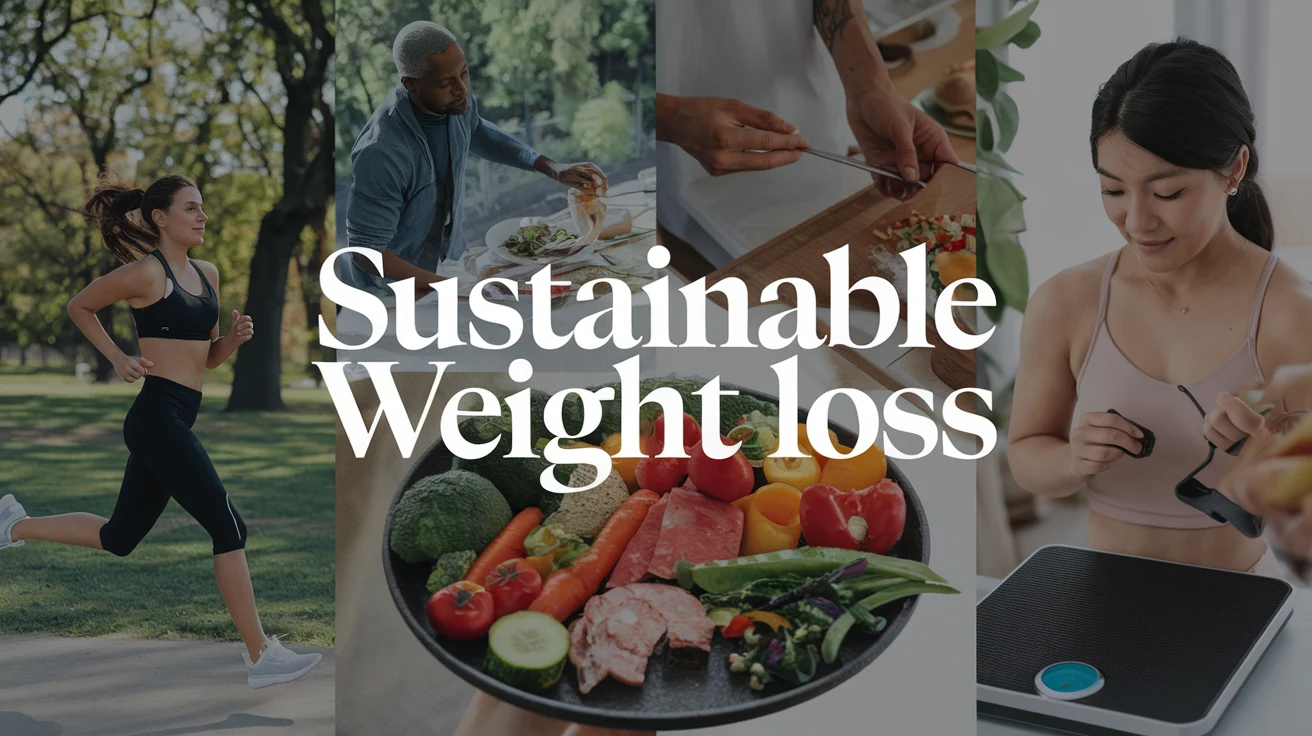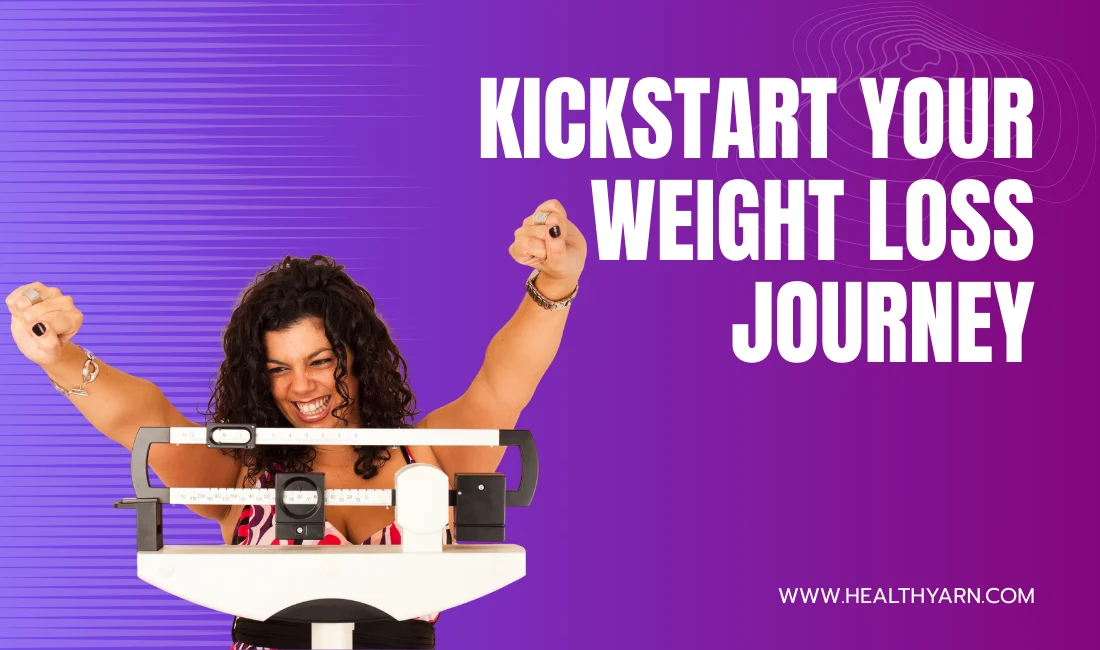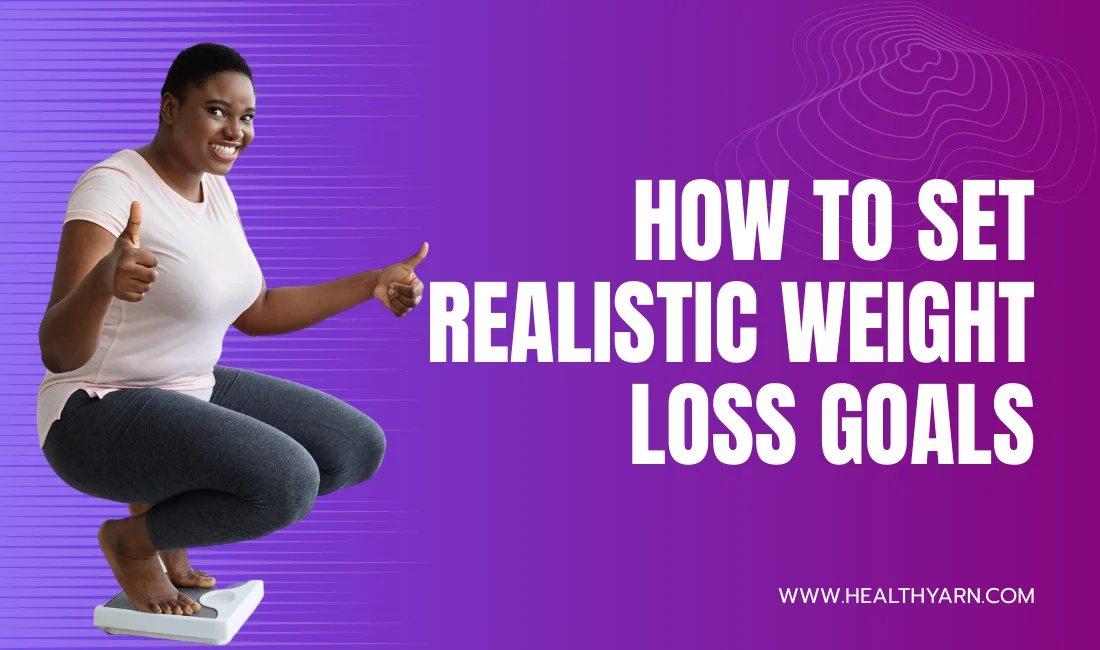In a world obsessed with quick fixes and fad diets, the quest for sustainable weight loss often feels like an uphill battle. Countless individuals find themselves caught in a cycle of yo-yo dieting, experiencing short-term success followed by frustrating setbacks. But what if there was a way to break free from this pattern and achieve lasting results?
Enter the sustainable weight loss plan – a game-changing approach that goes beyond temporary solutions and addresses the root causes of weight gain. By understanding the factors contributing to obesity, determining a healthy weight goal, and making lifestyle changes that align with individual needs, it’s possible to create a roadmap to long-term success. This comprehensive strategy not only focuses on balanced nutrition but also emphasizes the importance of support systems and holistic well-being.
In this blog post, we’ll delve into the key components of crafting a sustainable weight loss plan that works for you. From unraveling the complexities of obesity to discovering practical tips for maintaining a balanced diet, we’ll explore the essential steps needed to embark on a transformative journey towards a healthier, happier you. 🌟💪
Understand what causes obesity

Factors Contributing to Obesity
Obesity is a complex health issue influenced by various factors. Understanding these causes is crucial for developing an effective and sustainable weight loss plan.
Genetic Predisposition
Genetics play a significant role in determining an individual’s susceptibility to weight gain. Some people may have a genetic predisposition that makes it easier for them to gain weight or harder to lose it.
Lifestyle Choices
Daily habits and choices significantly impact weight. Key lifestyle factors include:
- Diet: Consuming excessive calories, especially from processed foods
- Physical activity: Lack of regular exercise
- Sleep patterns: Insufficient or poor-quality sleep
- Stress management: High stress levels leading to emotional eating
Environmental Factors
The environment we live in can contribute to obesity:
- Food availability: Easy access to high-calorie, low-nutrient foods
- Sedentary culture: Jobs and lifestyles that promote sitting for long periods
- Marketing influence: Exposure to advertisements for unhealthy food options
Medical Conditions
Certain health conditions can lead to weight gain:
| Condition | Impact on Weight |
|---|---|
| Hypothyroidism | Slows metabolism |
| PCOS | Affects hormone balance |
| Cushing’s syndrome | Increases cortisol levels |
Understanding these factors is essential for developing a personalized and sustainable weight loss plan. By identifying the specific causes contributing to an individual’s weight gain, it becomes possible to address them effectively and create lasting change.
Work out your healthy weight

Want to get fit and healthy?
Determining your healthy weight is a crucial step in creating a sustainable weight loss plan. It’s not just about reaching a specific number on the scale, but rather achieving a weight that supports your overall health and well-being.
To work out your healthy weight, consider the following factors:
- Body Mass Index (BMI)
- Waist circumference
- Body composition
- Health indicators
Here’s a breakdown of these factors and their importance:
| Factor | Description | Importance |
|---|---|---|
| BMI | Calculation based on height and weight | Quick initial assessment |
| Waist circumference | Measurement around the waist | Indicates abdominal fat |
| Body composition | Ratio of fat to lean mass | More accurate than BMI alone |
| Health indicators | Blood pressure, cholesterol, etc. | Overall health assessment |
When setting your weight loss goals, focus on sustainable fitness rather than rapid weight loss. Aim for a calorie deficit of 500-750 calories per day, which can lead to a healthy weight loss of 1-2 pounds per week. This approach promotes long-term weight loss and helps establish healthy habits.
Remember, a healthy weight is not just about appearance. It’s about improving your overall health, reducing the risk of chronic diseases, and enhancing your quality of life. As you work towards your weight loss goals, prioritize balanced nutrition, regular physical activity, and mindful eating practices.
Make changes that work for your lifestyle

Sustainable Lifestyle Changes for Weight Loss
Personalized Approach
When it comes to creating a sustainable weight loss plan, making changes that work for your lifestyle is crucial. A personalized approach ensures that you can maintain these changes long-term, leading to successful weight management. Consider the following strategies:
- Identify your current habits and routines
- Set realistic and achievable goals
- Gradually introduce changes to avoid overwhelm
- Focus on progress, not perfection
Integrating Healthy Habits
Incorporating healthy habits into your daily routine is key to sustainable weight loss. Here’s a table comparing traditional weight loss methods with sustainable lifestyle changes:
| Traditional Methods | Sustainable Changes |
|---|---|
| Strict diets | Balanced, flexible eating |
| Intense workouts | Enjoyable physical activities |
| Quick results focus | Long-term health focus |
| All-or-nothing mentality | Gradual, consistent progress |
Time Management for Health
Effective time management is essential for maintaining a healthy lifestyle. Prioritize your health by:
- Meal prepping to ensure balanced nutrition
- Scheduling regular exercise sessions
- Finding opportunities for movement throughout the day
- Allocating time for stress-reducing activities
Adapting to Challenges
Life is unpredictable, and your weight loss plan should be flexible enough to adapt to challenges. Develop strategies to stay on track during:
- Busy work periods
- Social events and celebrations
- Travel and vacations
- Stressful situations
By making changes that align with your lifestyle, you’re more likely to achieve your weight loss goals and maintain them long-term. Remember, sustainable weight loss is about creating habits that you can stick to for life.
Eat a balanced diet

Balanced Nutrition for Sustainable Weight Loss
A balanced diet is crucial for sustainable weight loss and overall health. It provides essential nutrients while maintaining a calorie deficit necessary for shedding pounds. Let’s explore key components of a balanced diet and how they contribute to your weight loss journey.
Macronutrients: The Building Blocks
A well-balanced diet should include appropriate proportions of macronutrients:
| Macronutrient | Recommended Intake | Benefits for Weight Loss |
|---|---|---|
| Protein | 20-30% of calories | Promotes satiety, preserves muscle mass |
| Carbohydrates | 45-65% of calories | Provides energy, supports gut health |
| Fats | 20-35% of calories | Hormone regulation, nutrient absorption |
Micronutrients: Essential for Health
Don’t forget about vitamins and minerals. A diverse diet rich in fruits, vegetables, whole grains, and lean proteins ensures you get the micronutrients your body needs to function optimally during weight loss.
Mindful Eating Practices
Incorporate these habits for a more balanced approach to eating:
- Practice portion control
- Eat slowly and savor each bite
- Listen to hunger and fullness cues
- Choose whole, unprocessed foods when possible
- Stay hydrated with water throughout the day
By focusing on balanced nutrition and mindful eating practices, you create a sustainable foundation for long-term weight loss success. This approach not only helps you achieve your weight loss goals but also promotes overall health and well-being.
Now that we’ve covered the importance of a balanced diet, let’s explore how getting support from others can further enhance your weight loss journey.
Get support from others

What to read next…
For those seeking to deepen their understanding of sustainable weight loss, consider exploring these related topics:
- The psychology of eating habits
- Meal planning for long-term success
- Incorporating mindful eating into your daily routine
- Understanding the role of hormones in weight management
Why am I not losing weight?
If you’re struggling to see results despite your efforts, several factors could be at play:
| Common Reasons | Possible Solutions |
|---|---|
| Unrealistic expectations | Set achievable goals and track progress |
| Hidden calories | Keep a detailed food diary |
| Lack of sleep | Prioritize 7-9 hours of quality sleep |
| Stress | Incorporate stress-reduction techniques |
| Plateau effect | Adjust your workout routine or calorie intake |
Remember, weight loss is not always linear. Factors such as water retention, muscle gain, and hormonal changes can affect the number on the scale. Focus on overall health improvements and how you feel, rather than solely on weight.
Donate today
Supporting organizations that promote healthy lifestyles and combat obesity can make a significant impact. Consider donating to:
- Local community health initiatives
- Research institutions studying obesity and nutrition
- Non-profit organizations providing education on sustainable weight loss
Your contribution can help create resources, fund research, and support those in need of guidance on their weight loss journey.
More useful information

Strength training exercises to do at home
Incorporating strength training into your sustainable weight loss plan is crucial for building muscle, boosting metabolism, and improving overall fitness. Here are some effective exercises you can do at home without equipment:
- Bodyweight squats
- Push-ups
- Lunges
- Plank holds
- Burpees
| Exercise | Repetitions | Sets |
|---|---|---|
| Squats | 15-20 | 3 |
| Push-ups | 10-15 | 3 |
| Lunges | 12 per leg | 3 |
| Plank | 30 seconds | 3 |
| Burpees | 10 | 3 |
Eating healthy on a tight budget: 6 top tips
Maintaining a balanced diet while managing expenses is possible with these cost-effective strategies:
- Plan meals and create a grocery list
- Buy seasonal produce
- Choose frozen fruits and vegetables
- Opt for cheaper protein sources like beans and eggs
- Buy in bulk and portion meals
- Cook at home and utilize leftovers
10 quick and easy healthy snack ideas
Incorporating nutritious snacks into your weight loss plan can help maintain energy levels and prevent overeating. Try these simple options:
- Apple slices with almond butter
- Greek yogurt with berries
- Carrot sticks with hummus
- Hard-boiled eggs
- Handful of mixed nuts
- Celery with peanut butter
- Cherry tomatoes and mozzarella
- Whole grain crackers with avocado
- Edamame
- Roasted chickpeas
These snacks provide a balance of protein, healthy fats, and complex carbohydrates to support your sustainable weight loss journey. Remember to practice portion control and mindful eating when incorporating these snacks into your daily routine.

Creating a sustainable weight loss plan requires a holistic approach that addresses the root causes of obesity while considering individual lifestyle factors. By understanding one’s healthy weight range and making gradual, manageable changes, individuals can achieve long-term success in their weight loss journey. A balanced diet, combined with regular physical activity, forms the cornerstone of any effective weight management strategy.
Support from friends, family, or professionals can significantly enhance motivation and adherence to a weight loss plan. Remember that sustainable weight loss is a gradual process that involves lifestyle modifications rather than quick fixes or extreme measures. By implementing these strategies and maintaining consistency, individuals can achieve their weight loss goals and improve overall health and well-being.









